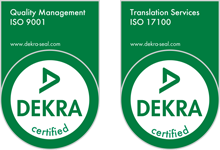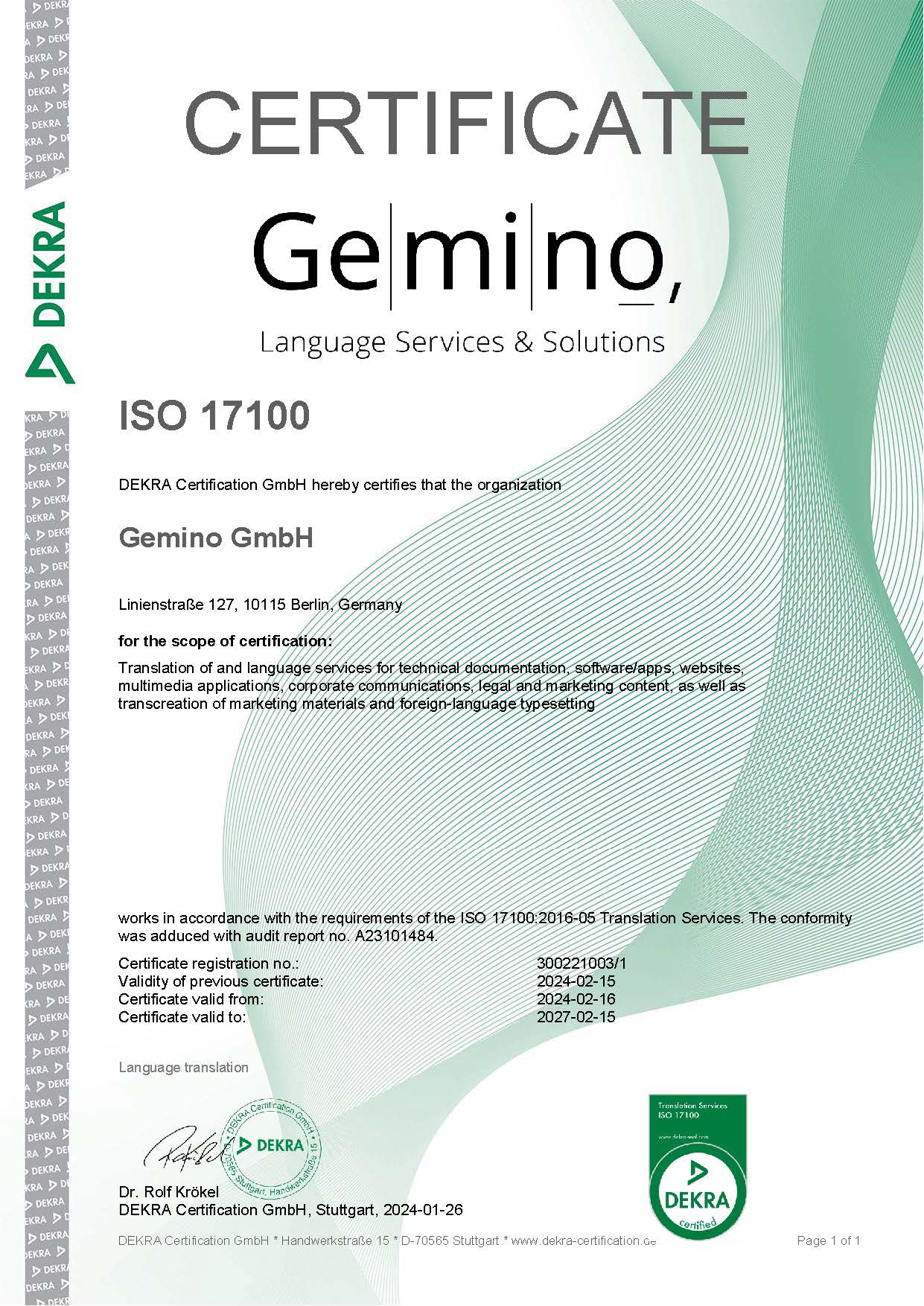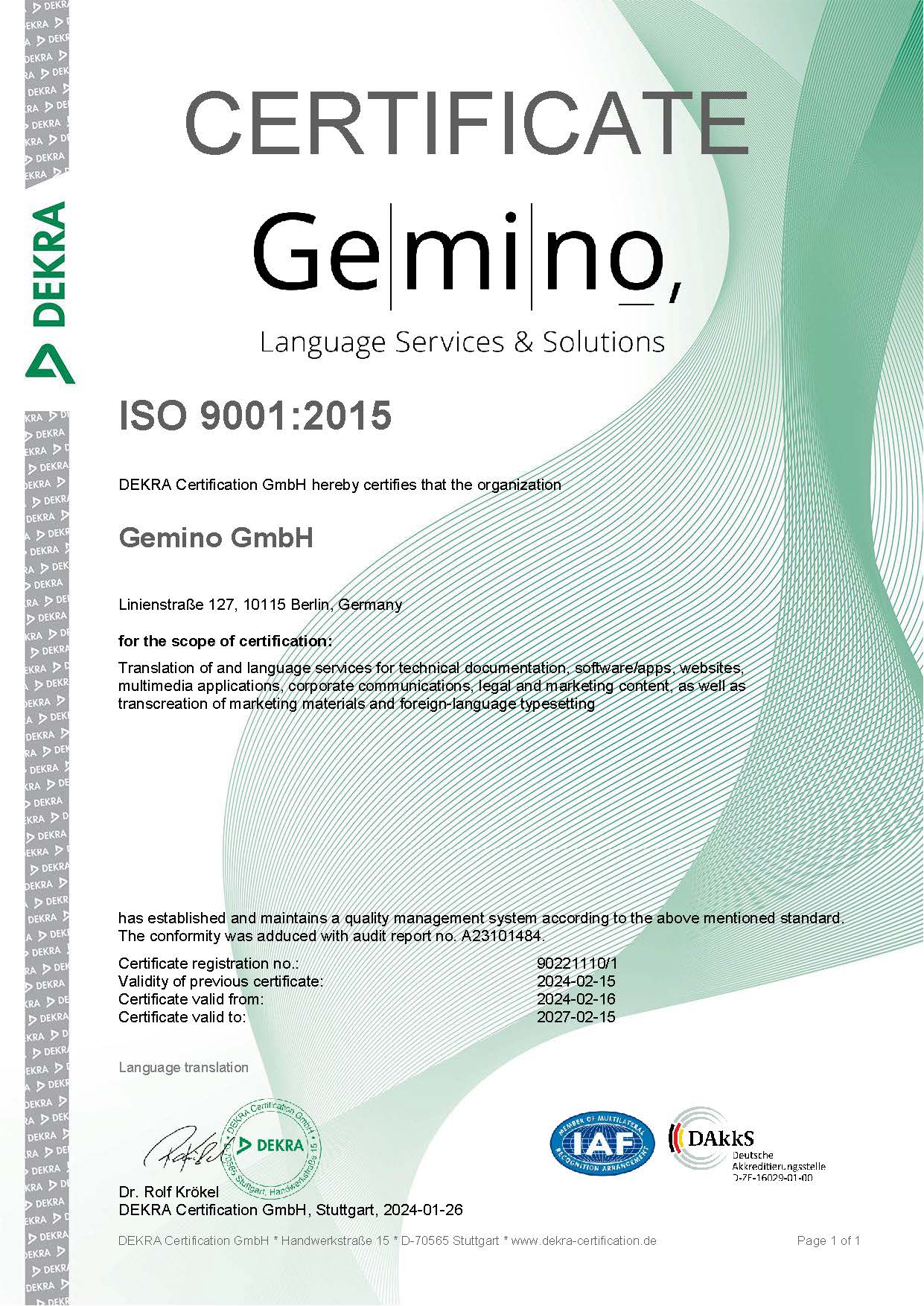Quality management & certifications
“Quality to us means continuously delivering a high level of service. And delivering the service that our clients’ really need.”
Who at Gemino could answer the most important questions about quality better than the boss?
Mr. Schwendy, where do you see Gemino’s strengths in quality management?
I think one of our great strengths is our ability to assess risks, i.e. to quickly adapt processes when conditions change and then still always achieve the desired result.
I call this “managing the unexpected”. Even with standardized workflows, new challenges often arise during the course of the project, or specifications change.
So quality requires flexibility?
It does, too. The decisive factor is the awareness that we are permanently in improvement processes. We consider every problem to see if we need to change something in the process. The auditor who carried out our ISO 9001 and ISO 17100 audits emphasized that one can see that this awareness is lived at our company. I was particularly pleased with his feedback. It shows that the “continuous improvement process” is not an empty promise for Gemino.
What does “quality” mean to you in general?
Simply put, quality is when the end result matches the clients’ expectation every time. Or, more precisely: a result that meets the clients’ goal in communicating. We have to ask ourselves who is to be reached and what is really to be achieved by a translation. This does not have to be the expectations of the person who orders the service. In the case of a marketing brochure, for example, the translation is aimed at our clients’ customers. “Quality” is when the translation is ideally suited to the intended use. And this is not always explained by the content alone.
So what do you base quality on?
The quality criteria for a translation are defined by the answer to the question we ask ourselves anew with every project: “What does the client really need?” The options range from machine translation – aiming merely at making a text understandable in another language – to a sophisticated translation workflow with revision and transcreation. If the purpose of the translation is to simply understand the content, some linguistic “messiness” may not interfere with the purpose of the translation. So there is no such thing as an absolute concept of quality.
If there is no absolute concept of quality, why does Gemino need its ISO certifications?
The ISO standards should rather be seen as a minimum standard that provides a certain structural framework. The decisive factor is whether a language service provider is able to deliver translations at a high quality level continuously. An ISO certification alone does not guarantee consistently high translation quality. It merely lays the foundation through sensibly defined, robust processes.
I must confess that I used to be skeptical. I primarily saw the risk of high additional costs due to the increased documentation effort required by certification, and I preferred to invest our capacities in concrete solutions. Today, I see that certifications are also a good tool for us internally to question the big picture. We regularly use it as an independent reference to check, as part of internal audits, whether our processes are being followed correctly and whether they are working. And the documentation is created on the side during the work process.




